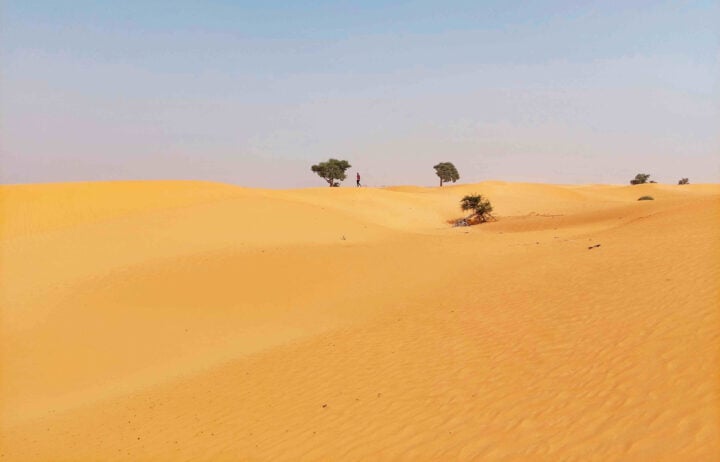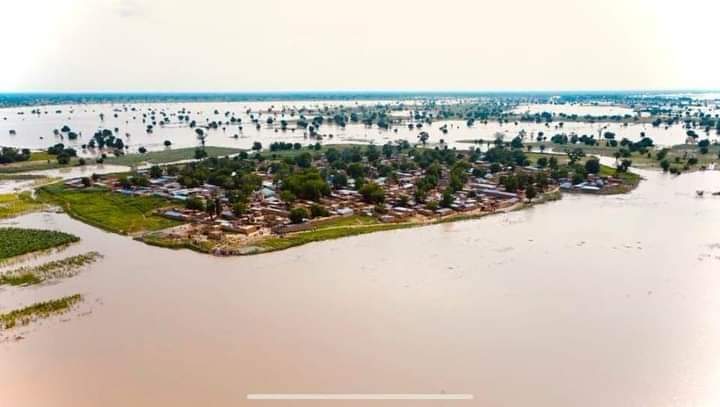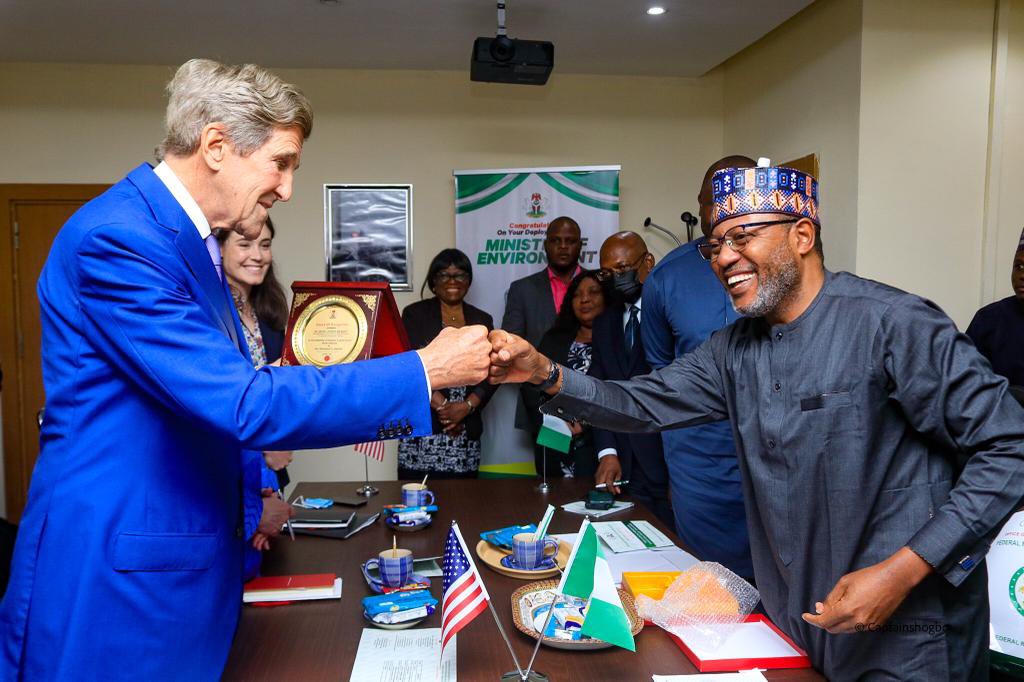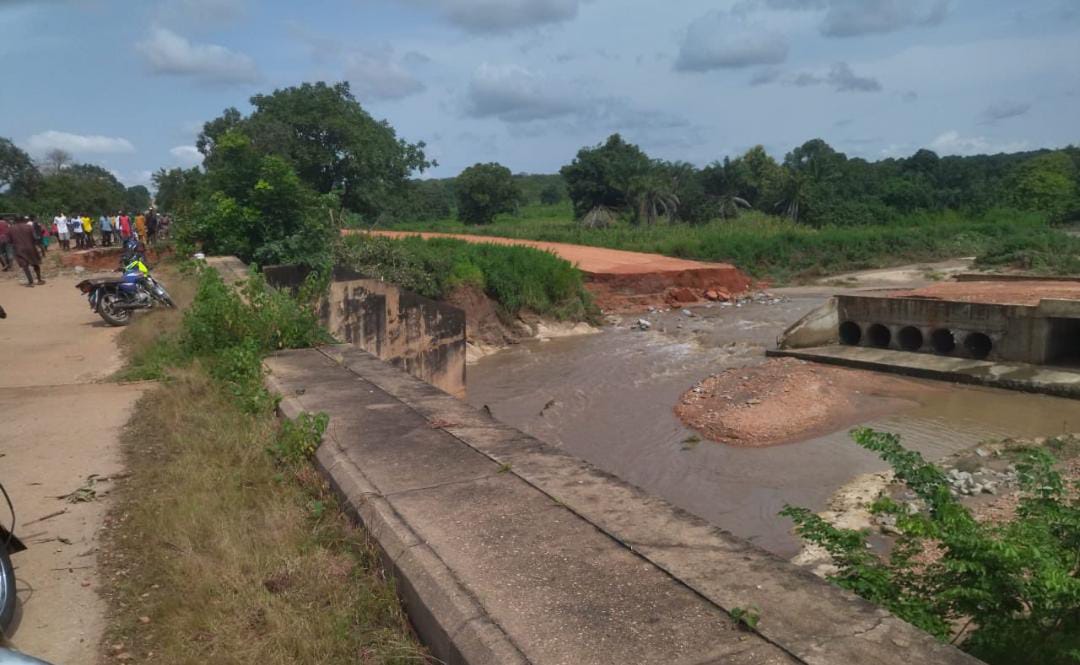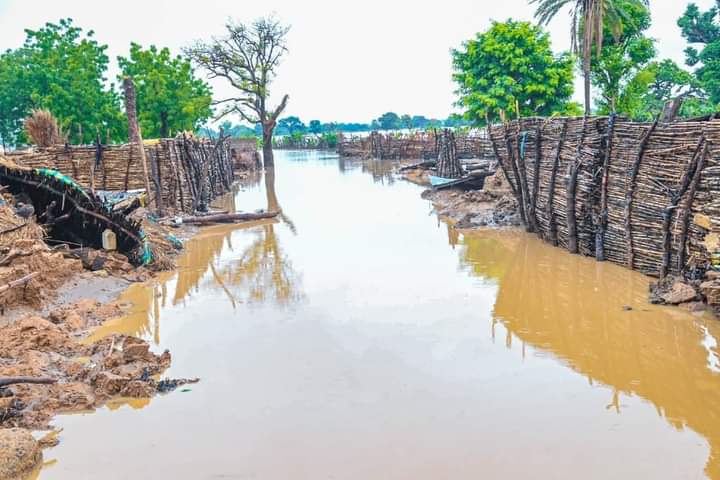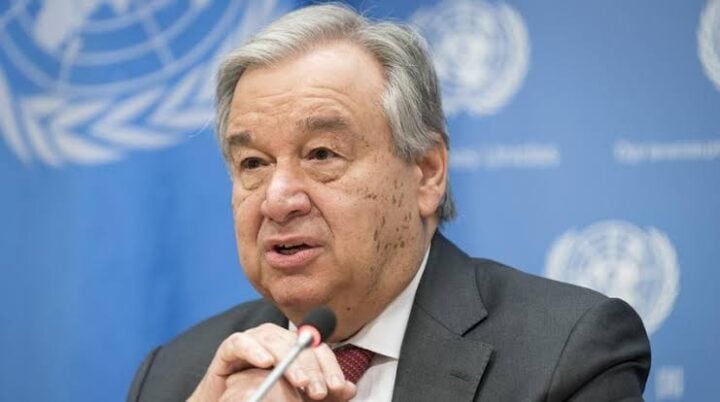What was once a community in the Zakkari Desert is now entirely covered in encroaching sands due to the extreme desertification in Yobe state. The trees on the horizon are the legendary acacia trees which hold potential to resist the desert encroachment and absorb nitrogen Ð which is among the harmful gasses contributing to climate change.
Photo by Murtala Abdullahi
Despite directly impacting our communities, health and livelihood, climate-related reports usually take a back seat to dominant news beats like politics and business. Climate Watch aims to ensure you never miss important stories on climate change and actions being taken towards limiting its impact.
Here is a round-up of last week’s climate stories:
- Akinwumi Adesina, president of the African Development Bank Group (AfDB), says the bank plans to provide $12.5 billion to support Africa’s climate action through the adaptation acceleration programme. Speaking at the Africa Climate Adaptation Summit in Rotterdam, Netherlands, Adesina said Africa receives only about three percent of global climate financing and thus lacks the resources to tackle climate change. He said the meagre financing is not meeting the needs of Africa, and as such, the continent’s climate financing gap will reach $100bn to $127bn per year through 2030. He added that new estimates by the African Economic Outlook of the AfDB show that Africa will need between $1.3trn and $1.6trn between 2020 and 2030 — or $118bn to $ 145bn annually — to implement its commitments to the Paris Agreement and its nationally determined contributions (NDCs).
- Ngozi Okonjo-Iweala, director-general of the World Trade Organisation (WTO), said trade is part of the solution to the climate crisis. Speaking at the Africa Adaptation Summit, she said there is a need to integrate trade policies into global climate action, saying “you might have financing, but if the trade policies don’t align, you may not be able to get the technologies you need for climate adaptation”. Okonjo-Iweala said through trade, countries can increase their return on investment and boost the resources available to African governments for adaptation.
Advertisement
- Atiku Abubakar, the presidential candidate of the Peoples Democratic Party (PDP), has asked the federal government to provide humanitarian assistance for flood victims. He said the damage done to public facilities like schools and hospitals is troubling, adding that farmers are the most impacted as their farmlands and food crops have been washed away. Atiku added that “these unfortunate incidents should be a wake-up call to the urgency of our responsiveness to the issues of climate change and global warming”.
- The Nigerian Meteorological Agency (NiMet) has predicted thunderstorms and rains from Monday, September 12, to Wednesday, September 14, 2022, across the nation. In its weather outlook, released on Sunday in Abuja, the agency predicted morning thunderstorms in northern states, especially in parts of Sokoto, Zamfara, Kebbi, Taraba, Kaduna, Bauchi, Gombe, Borno and Adamawa. Also, Kaduna, Katsina, Kano, Bauchi, Gombe, Sokoto and Kebbi states are expected to experience thunderstorms in the mornings. Other states likely to experience rains are Lagos, Oyo, Osun, Edo, Ogun, Ondo, Ekiti, Delta, Enugu, Anambra, Imo, Cross River and Akwa Ibom.
- The World Bank Group says it delivered $31.7bn to help countries address climate change in 2022. The amount represents a 19 percent increase from the $26.6 billion financing recorded in the previous fiscal year. The World Bank said $700 million was given to Nigeria to help 3.4 million people adapt to the changing climate; develop 20 watershed management plans; and prioritise investments that can slow desertification, among others. Morocco was said to have received $500 million for a project to improve protection against health risks and to strengthen climate risk management and resilience against catastrophic events.
Advertisement
Add a comment
